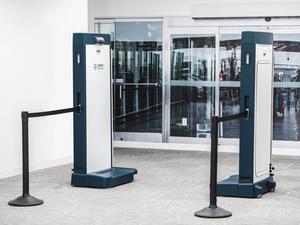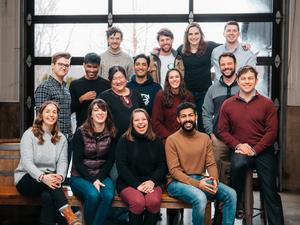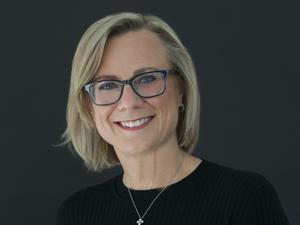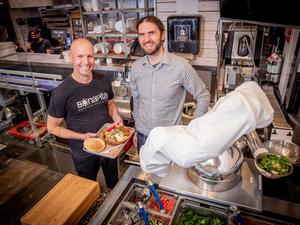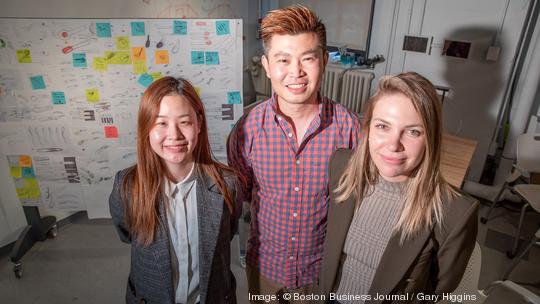
When Ekaterina Tyshchenko completes her master’s degree in integrated design and management from MIT this spring, she won’t join the throng of graduates joining companies like Google. Instead, she and two fellow students will continue pursuing an area of innovation that doesn’t get as much attention in the tech industry.
Tyshchenko and her classmates Hannah Oh and Jonathan Zhou are on a mission to prevent pressure ulcers for seniors, paralyzed individuals and others with mobility impairments. They founded the medtech company Moshion in the summer of 2021 and have developed a prototype device that monitors pressure and movement.
“It’s very rare to see younger folks, technical folks, innovating and working in this area,” Tyshchenko told BostInno. “When we talk to people who work there, they become really excited saying, ‘Oh my God, we haven’t seen any innovation in this area for 30, 40 years.’”
Tyshchenko learned about the dangers of pressure ulcers firsthand. Her grandfather became paralyzed in his 70s and passed away when one of his pressure ulcers became infected. Tyshchenko’s mother, a doctor in a hospice facility, told her that infections from pressure ulcers are one of the top problems they dealt with in her work.
“Which seemed quite trivial, because all you really have to do is go and reposition people,” Tyshchenko said. “But when you start considering everything, it becomes really, really complex and an interesting problem to solve.”
Pressure ulcers can occur when the body remains in the same spot for as little as two hours, Tyshchenko said. The pressure on body parts, such as a tailbone pushed against a seat or bed, prevents oxygen and nutrients from flowing to this area. If untreated, the ulcer can become an open wound or blister.
Moshion’s first product is a fabric-like material with embedded sensors that tracks pressure build up. The fabric can be placed on surfaces like a bed or a wheelchair. The sensors track pressure, activity and posture over time, alarming caregivers if pressure builds up in certain spots, Tyshchenko said.
The device can help overworked caregivers manage repositioning in real time, Tyshchenko said, and gives them long-term data on how often specific individuals need to move. Most importantly, it helps caregivers check on individuals who actually need assistance and tracks when individuals reposition themselves.
The Moshion team is consulting with nursing homes to develop a system for notifying staff members. Tyshchenko said they also spoke with around 100 doctors and plastic surgeons to understand the science behind ulcers and the resulting wounds.
Sign up for The Beat, BostInno’s free daily innovation newsletter from BostInno reporter Hannah Green.
Moshion was part of the MIT Sandbox Innovation Fund Program and will participate in the delta v accelerator, a capstone entrepreneurial program for MIT students, this summer. Then, Zhou, Oh and Tyshchenko work on Moshion full-time in Greater Boston.
The company is in the process of raising funds and aims to bring in $2 million, Tyshchenko said. The funds will be used for product design and development, as well as for an FDA 510(k) application to begin testing its product.
“It’s very scary having to step out of this very comfortable, very friendly world where everyone is supporting you, to all the unknown unknowns,” Tyshchenko said of life after MIT. “But I’m excited to see what the project becomes and how things evolve.”
An earlier version of this story incorrectly spelled Jonathan Zhou's name.
